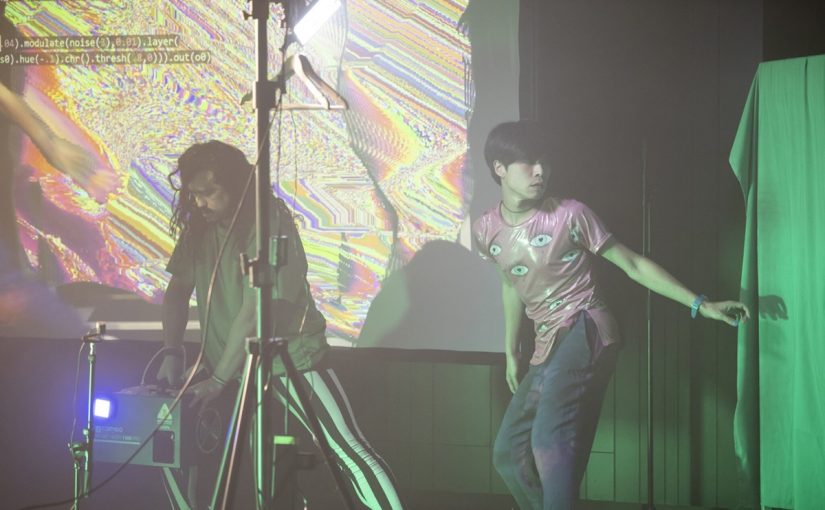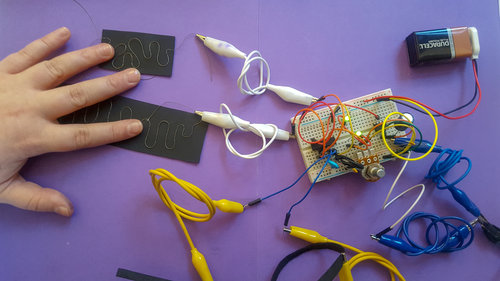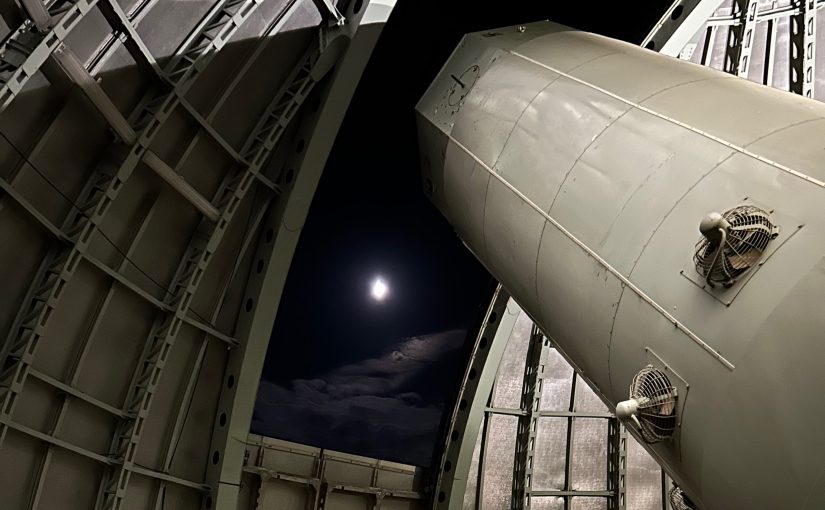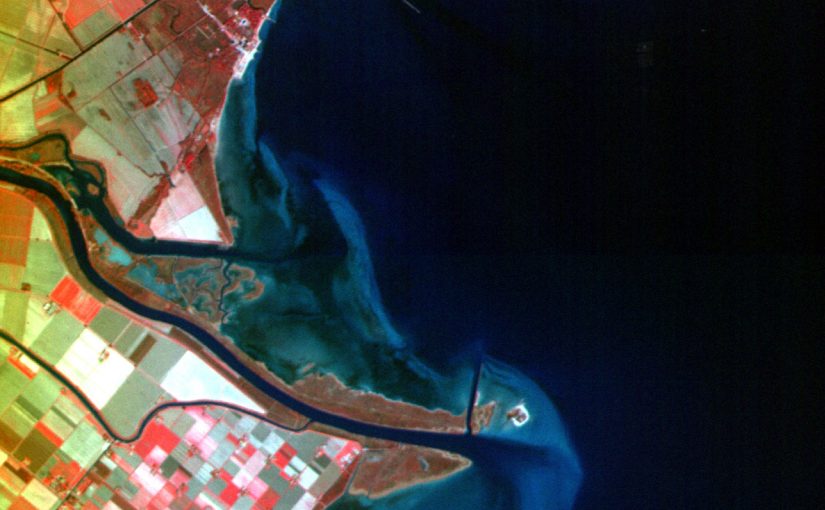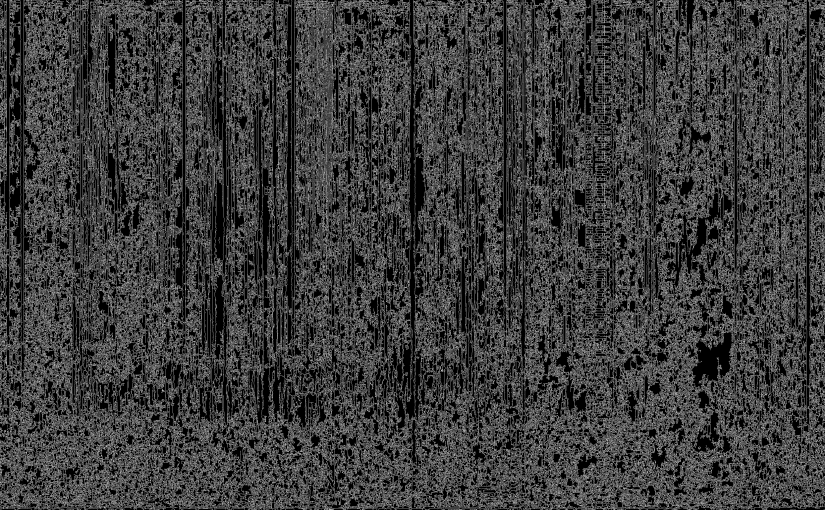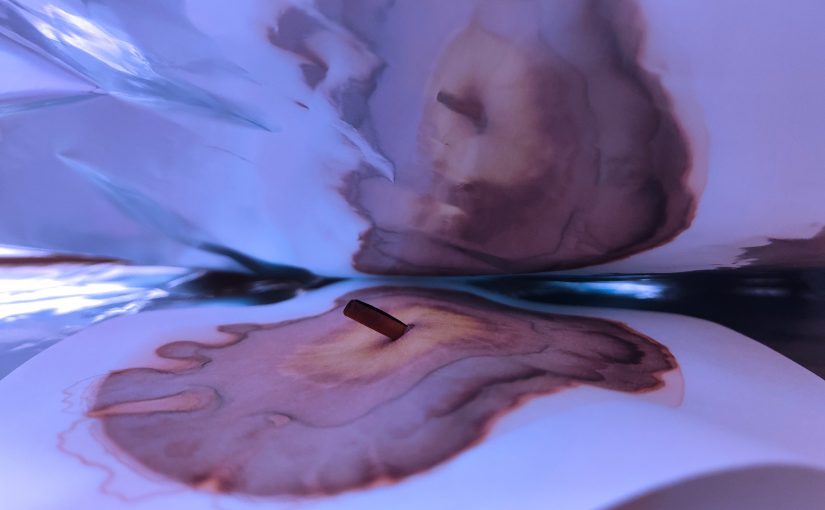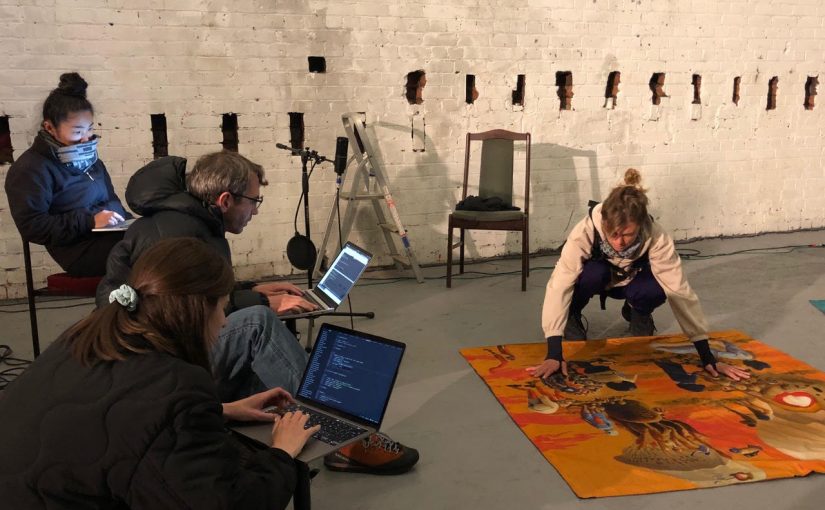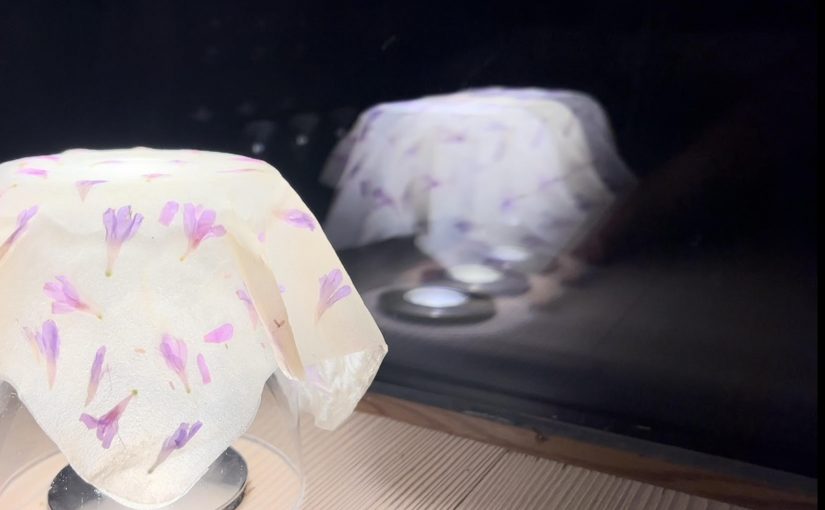Category: 2024
Open Saturday 2024 & PIFcamp celebration
SEE YOU TONIGHT AT KLUŽE! 🎉🎉🎉 PIFcamp Celebration! 🎉🎉🎉
An evening of AV performances celebrating 10 years of PIFcamp!
Open Saturday, August 3, 2024 | 8.30 PM
Kluže Fortress, Bovec
You are invited to the grand finale of the 10th PIFcamp edition, which will conclude at Kluže Fortress on the night of August 3rd. Join us as we celebrate a decade of your favourite hacker camp in a festive birthday atmosphere and enjoy an evening of audiovisual performances featuring modular synthesis sounds, live coding, and vibrant laser projections!
Performers:
Alex McLean & Lizzie Wilson (UK), Live Coding with Time
Pierce Warnecke & Matthew Biederman (US/CA): Sonopeutic Smooth Sailing, AV performance
LazerMeduza (AT/CZ), Modular Synths & Lasers
Shekuza (SI), Modular Synths Live & Turbulente (MX/ES), Visuals/ Live Coding
Free admission.
In case of rain, the event will be cancelled.
The so-called Open Saturday, an informal closing of PIFcamp, will be held at the main venue (Soča 25, Bovec), starting at around 1 PM. The gathering in a relaxed atmosphere is dedicated to internal presentations of projects developed by participants throughout the week in a form of all-day free workshops, presentations, lectures, and tastings! The detailed program will be announced later (or may not be). Regardless, you are welcome to drop by Soča before heading to Kluže!
More info: pifcamp@ljudmila.org
***
Production: Zavod Projekt Atol, Društvo Ljudmila & ISOLABS.
With the support of the Ministry of Culture RS and the Municipality of Ljubljana. The event is part of the official programme of the European Capital of Culture 2025 Nova Gorica – Gorizia. PIFcamp is part of the Rewilding Cultures project, co-financed by the European Union’s Creative Europe program and the Ministry of Public Administration RS.
Dance, body expression and live coding
Dancer and choreographer Jorge Guevara, driven by a desire to bridge the gap between coding (tech) and embodied practices (dance), will introduce his collaborative project utilizing Hydra j.s., a live-coding platform for visual art, in conjunction with dance and body expression. He has been crafting this fusion together with Naoto Hieda. The unique setting of PIFcamp provides an ideal space for them to explore the interplay of code and corporeality, seeking connections with nature and collaborating with fellow enthusiasts. During the camp, they will use the opportunity to experiment with a new workshop setup they are preparing for their upcoming performance.
The workshop is based on a twofold approach:
- Hydra Introduction (1-2 hours): Dive into coding with Hydra, creating abstract images and “body filters” using our user-friendly web interface. No coding experience required.
- Embodied Practice (1-2 hours): Explore embodying objects and connecting with nature through performative practices. We may bring in laptops too, and try the code from the previous workshop, which will happen organically.
These sessions offer a seamless blend of technical (live coding) and body practices, fostering a deeper connection with ourselves and the natural world.
The workshop will wrap up with a feedback session, offering a chance for reflection and sharing experiences. The input of the participants will be invaluable for their coding-corporeal practice, which includes the performance at Kino Šiška in Ljubljana on 30 August 2024.
Photo: Urška Boljkovac/Kino Šiška
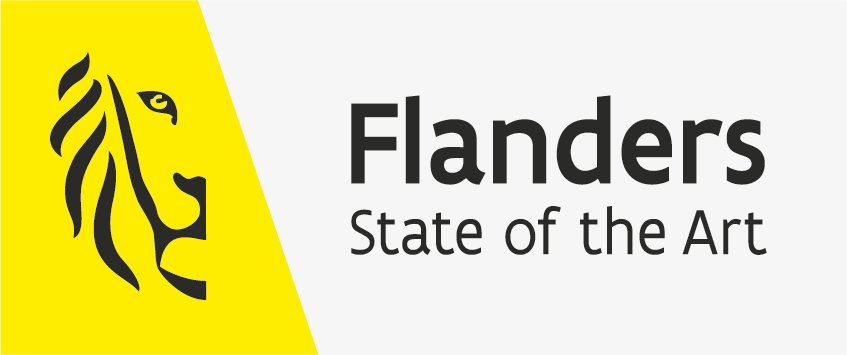
With support of Flanders.
Rainy day synths
Do you like synthesizers but don’t want to compose your own music? And do you also live in a rainy country? Jessica Stanley is a researcher working with e-textiles and has a solution for you: a raincoat that generates sound when raindrops fall on it. At PIFcamp, she will experiment with different flexible and textile moisture sensor designs, using a mix of hydrophobic (waterproof) and hydrophilic (absolutely not waterproof) fabrics to move water through sensors and create interesting sounds. These will then be connected to simple analog synthesizer circuits and integrated into a raincoat to make a garment that creates its own soundtrack during a walk in the rain.
Jessica is currently a postdoctoral researcher based in the UK and works on medical research projects combining textiles and electronics. However, she is also interested in how textiles can make interesting interfaces for electronic devices and in projects that make electronics accessible to a wider audience. This will be her first time at PIFcamp, and she is keen to collaborate with others who have more experience on the audio electronics side of things, or to share her e-textile knowledge with others.
In search of deep time
Every time we look into the starry sky, we are looking into the past. The further we go in observing space, the further back in time we travel. Astronomical observations of deep time are based on the spectroscopy of very distant objects that emit or absorb visible light, such as stars, galaxies, and black holes. With microwave emissions, cosmic rays, and gamma-ray bursts from supernovas and other transient objects, we can also trace distant times, but these emissions are better detected from outer space.
In her current research project, which started during the Astronomia residency in the mountains of Portugal and at the Haute Provence Observatory in France, artist Katarina Petrović is exploring material and immaterial ways of journeying into deep cosmic times. During PIF, she will look for traces of deep time detectable and collectable on the ground, break sunlight to observe the solar spectral absorptions in real time, and attempt to record cosmic rays using CCD image sensors. She will use a small magnetic loop antenna to search for and listen to the cosmic radio noise coming from the center of the Milky Way, and look for stardust or micrometeors – very small meteor particles left over from larger pieces burning up in Earth’s atmosphere.
Katarina Petrović (NL/RS) is an artist and researcher working with language, computation and various physical phenomena including sound, vacuum, light and radio. She creates systems, procedural works that are presented as modular installations in an online and offline space, using media such as generative text, poetry, sound, software and performance. She holds a MMus degree from ArtScience Interfaculty, Royal Conservatoire and Royal Academy of Arts, The Hague and an MFA from the Academy of Fine Arts, Belgrade. Katarina is an affiliated researcher at the trans-disciplinary research Centre Leo Apostel, Vrije Universiteit in Brussels and a guest lecturer at the postgraduate School of Thinking, VUB and ArtScience Interfaculty in The Hague. She has been the managing director of Trixie, an artist run space in the Hague since 2021 and is co-initiator of ArtScience Forum platofrm and Femkanje – art radio in Belgrade.
ISOLABS x PIFcamp
ISOLABS is conceived as a landscape of forensic situations between art and science, stretching from the source to the mouth of the Soča River. It encompasses fieldwork and exchanges, environmental and remote sensing, mapping, reflection, and encounters with local and global communities that connect art, technology and the sciences.
With the accessibility of modern instruments for environmental sensing and recording, whether on a biological, chemical, physical, or visual level, human capacity to understand the components of what we consider “nature” has exponentially increased. However, to fully broaden our view of complex biospheres and comprehend them as ecosystems, we must integrate cultural, historical, and geological realities. How can an Alpine river, flowing into the Mediterranean Sea, with its material and cultural sedimentary deposits, contribute to ecological thought?
The Soča River is a particularly fragile biosphere and cultural treasure, which in its Alpine part is associated with a complex mix of historical conflicts, exploitation for hydroelectric power and sports tourism, extreme pollution, and geological damage. In its lower course, it creates a subtle micro-spread of the urban structures of Nova Gorica and Gorizia. Its mouth and contact with the Adriatic Sea form a new fragile ecosystem. During PIFcamp, the SPEKTR-Z[i] team will continue with the mapping and charting of the valley, an important part of the activities will also be connected to the launch of DIALECT (Distinctive Intonation and Articulation for Local Expression/Ecological Conveying and Traits identification), which is an ISOLABS research cluster devoted to mapping Slovenian, Friulian, and Italian dialects and microtoponyms in and around the river basin.
The team will also devote part of its time to the exploration of the war histories of the valley in connection to their preparations for Expanding Black situation, a research direction aimed at reflecting the global information space expansion of kriegstheater/theatrum belli, especially focused on the ongoing war operations on the territory of Ukraine, Russian Federation, Azov sea, Black Sea as well in adjoining airspaces.
[i] SPEKTR Z – Sensor Polygon for Electromagnetism, Communication, Technology, Research, and Detection is a hybrid mobile laboratory. It began operating in July 2022 in the Karst region during the largest natural fire in modern Slovenian history. Its activities continued as part of the ISOLABS project in the Soča River basin in August 2022, where it will remain active at least until 2026. The laboratory is of a hybrid nature, composed of modules and equipment for remote sensing, receiving, and processing systems for sensor data. A special section of the laboratory is dedicated to public presentations of its operation and collaboration with tactical media workers, artists, the creative and high-tech industry, and research institutions. The laboratory will be physically present in the Soča River basin from 2024 onwards, and we also plan to present it to the public at the central location of the European Capital of Culture in Nova Gorica. The laboratory is currently under construction and is expected to become operational in the fourth quarter of 2024.
suNEARth – Interconnections in frequencies
suNEARth is an interface translating radio sun observations into compositions with field recordings collected on Earth. A composition follows a linear data spectrogram which is translated into sound using visual pattern recognition. The algorithm searches through the collected and archived field recordings and finds the best visual matches in the audio spectrograms. In this way, the sun observations are not compressed to the audio spectrum but rather manifest in recognizable recorded sounds or a total mess, as the sun and Earth can be.
The interface was developed by Gianluca Elia and Francesco Bigoni and was part of the objectives for PhD research addressing sun-Earth cohabitation by Pepa Ivanova.
Pepa is inviting PIFparticipants to perform the sun collectively. Anyone willing to record sounds, describe and categorize them, as well as try the interface or even advise on improving the methods and upgrading the code, can join. Other types of data recordings using spectrograms as output are also very welcome.
Scrolling Soil by Saša Spačal
In the current era, characterized by a diminishing empathy towards the non-human agents of our ecosystems, the essence of our relationship with the soil is under scrutiny as well. The “Status of the World’s Soil Resources” report, published by the Food and Agriculture Organization (FAO) in 2015, illuminates a paradox: while our understanding of soil has reached unprecedented levels, the proportion of individuals directly engaged in soil cultivation has declined significantly across the globe1. This trend has profound implications, especially considering that approximately 95% of the nutrients in our food supply are derived directly or indirectly from soil, which possesses the inherent capacity to nourish plant life2. The disengagement of the majority of contemporary humans from the living cycles and agrobiodiversity of the Earth is arguably a consequence of prioritizing productivity and profitability, highlighting a pressing need for reconnection with the very ground that sustains us.
In response to this challenge, the intention of artist Saša Spačal is to leverage soil chromatography as a method for environmental engagement during the upcoming PIFcamp. This will be achieved through conducting soil chromatography workshops and the creation of large-scale textile soil chromatograms, which will serve as sound scores. Subsequent research will focus on the conceptualization and preliminary testing of a sound instrument designed to interpret these textile scrolls, transforming them into a performance tool that vocalizes the soil. This endeavor seeks not only to cultivate a renewed interest in the substrate that nourishes us but also to underscore the critical role of soil in sustaining life on Earth through sonic storytelling about hyperlocal underground communities.
- https://www.fao.org/3/i5199e/i5199e.pdf, accessed: March 13th, 2024 ↩︎
- https://www.fao.org/3/cc0900en/cc0900en.pdf, accessed: March 13th, 2024) ↩︎
Modulating Time
Modulating Time is a collaboration between artists Lizzie Wilson, Alex McLean, and Mika Satomi. Together, they will explore connections between e-textiles and live coding, including modulating time in live coding performance through movement tracked via sensors and machine learning.
Mika is interested in developing a physical wearable device that senses the tempo and pattern of the wearer’s movement. Lizzie and Alex are looking into how the tempo and pattern can be extracted from the sensor data and incorporated into live coding processes to create interesting music.
We are excited to host this project at the 10th PIFcamp and look forward to seeing the outcome!
Kubus & Mindful Food Design
As part of KUBUS Fransisca Tan will offer insights into her work as a food experience designer and creative producer. Join her for sensory explorations connecting food, ecosystem thinking and mindfulness.
She will dedicate some of her time to further develop and prototype on two of her ongoing projects: ArtEO: Environmental Data for Artists & Wild Flower Festival.
Activities will be curated on-site, depending on interest and requests by the group. These may include: sensory walks, scent design, eat design, ice cream interventions, flower conservation & rice paper sculpting, climate data & arts workshop.
